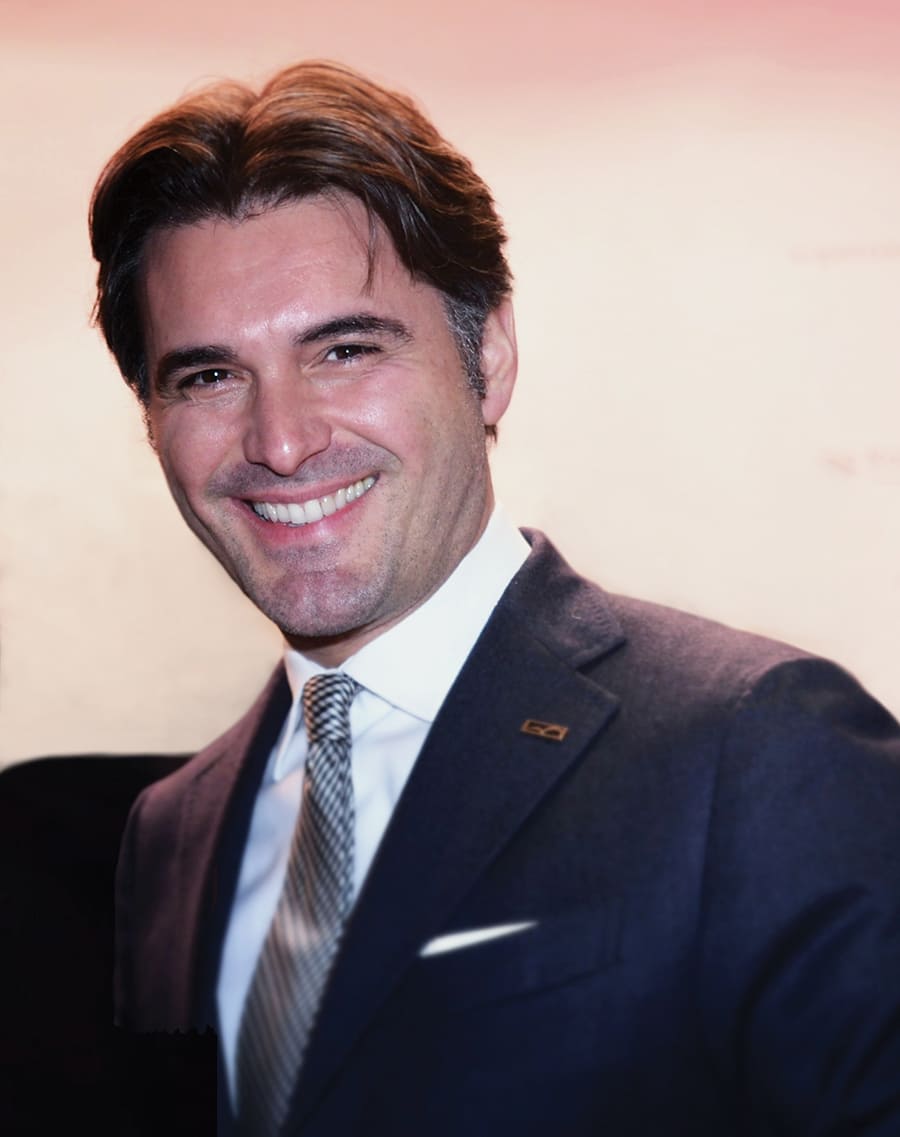
Speciale Hong Kong: HKTDC Italia, Gianluca Mirante «Vince chi arriva preparato, il mercato asiatico non è una lotteria»

 Ha 50 uffici in tutto il mondo e un quartier generale dove operano mille persone l’Hong Kong Trade Development Council (Hktdc), che in Italia – tra le altre cose – assiste le imprese che vogliono affacciarsi a quei mercati e lavora costantemente con Ice e Federpreziosi, per organizzare la presenza di espositori e buyer alle due fiere di settore, ma anche con Ieg, che nell’ex colonia britannica porta T.Gold, il salone dei macchinari per l’oreficeria. E proprio per far conoscere le opportunità offerte, il prossimo anno l’ente di promozione del commercio di Hong Kong organizzerà un’importante campagna promozionale in Italia, che culminerà in un grande evento a Milano a ottobre. Responsabile delle attività dell’HKtdc in Italia è il direttore Gianluca Mirante.
Ha 50 uffici in tutto il mondo e un quartier generale dove operano mille persone l’Hong Kong Trade Development Council (Hktdc), che in Italia – tra le altre cose – assiste le imprese che vogliono affacciarsi a quei mercati e lavora costantemente con Ice e Federpreziosi, per organizzare la presenza di espositori e buyer alle due fiere di settore, ma anche con Ieg, che nell’ex colonia britannica porta T.Gold, il salone dei macchinari per l’oreficeria. E proprio per far conoscere le opportunità offerte, il prossimo anno l’ente di promozione del commercio di Hong Kong organizzerà un’importante campagna promozionale in Italia, che culminerà in un grande evento a Milano a ottobre. Responsabile delle attività dell’HKtdc in Italia è il direttore Gianluca Mirante.

Gianluca Mirante
Direttore, Hong Kong è uno snodo chiave per gli affari. L’attuale situazione sociopolitica che effetti sta avendo?
Il momento è molto delicato, ma non ci sono grandi ripercussioni. Alle ultime fiere – vino e occhialeria – c’è stato un leggero calo nell’affluenza di operatori dalla Cina continentale, nell’ordine del -16%, ma sono andate comunque bene, con buyer di qualità, provenienti soprattutto dal Sudest asiatico, che hanno fatto registrare un aumento.
Il bacino d’utenza e il raggio d’azione di Hong Kong, non sono infatti limitati alla Cina, ma comprendono anche il resto dell’Asia, in particolare appunto il Sudest asiatico o paesi come Taiwan, Corea e Giappone. Da parte nostra per rassicurare abbiamo attivato desk all’aeroporto, organizzato navette e mandato nostro personale. Quello però che abbiamo recepito è stato non tanto il timore per l’incolumità, ma per la presenza o meno di buyer e ci siamo focalizzati su questo, intensificato le sponsorship e gli inviti attraverso i nostri uffici del Sudest asiatico, da paesi emergenti che stanno crescendo. Per quanto riguarda la gioielleria i principali sono Indonesia e Thailandia, da dove arriva anche un numero massiccio di espositori.

Hong Kong è un grande hub: le aziende italiane come possono approfittare delle opportunità che offre?
Il primo passaggio è senz’altro la preparazione: bisogna iniziare raccogliendo e approfondendo tutte le informazioni utili sulle caratteristiche del mercato e le sue potenzialità e poi visitarlo. Al primo aspetto pensiamo noi. Notiamo che a volte ci si muove come a una lotteria, dicendo “Proviamo…” e arriviamo anche a sconsigliare, quando vediamo che non c’è neanche l’“abc” dell’internazionalizzazione. Se invece c’è il giusto atteggiamento e non ho mai partecipato a una fiera in Asia, prima devo capire se il mio prodotto è ben accetto su certi mercati, se il tipo di materiale va o meno, come muovermi se ho un brand o no. Una volta fatto questo consigliamo di andare, perché è anche un’esperienza di mercato, che permette di confrontarsi con buyer da tutto il mondo.
C’è spazio per l’unbranded?
C’è, anche se ovviamente il marchio è avvantaggiato, perché lavora molto sul marketing, che significa tirare fuori una storia di generazioni, che fa più presa su un buyer locale. L’unbranded ha possibilità se ha un buon prodotto, anche se abbiamo notato che a un certo punto molti decidono di creare un marchio e quindi una storia. In questo le aziende italiane sono facilitate, perché non devono inventare nulla, ma affinare e raccontare quello che già hanno. In alcuni settori in Cina la storia è anche più importante del prodotto e pensare che questo venga da una tradizione secolare dà valore al bene.

L’Italia è fatta di Pmi, c’è anche per loro la possibilità di affacciarsi a questi mercati?
Noi lavoriamo molto con le Pmi, perché i grandi brand hanno le risorse e le conosceze per andare da soli. Tutti gli altri vanno attraverso le associazioni, che sono fondamentali e con le quali dialoghiamo molto. Una partecipazione di gruppo permette di abbattere i costi ed applicare economie di scala per la promozione. Porto un contesto italiano, che già fa presa, e ho a disposizione una persona in grado di parlare con gli operatori, passarli alle aziende, posso condividere la spesa di un interprete…
Cosa si aspetta il consumatore cinese dal prodotto italiano?
Sicuramente qualcosa di legato alla qualità e alla tradizione italiana. In questo il prodotto deve essere aiutato dal marketing.

HKTDC Italy, Gianluca Mirante: «The winner arrives prepared, the Asian market is not a lottery».
50 offices around the world and a headquarters where a thousand people operate: the Hong Kong trade development council (Hktdc), which in Italy – among other things – assists companies that want to branch out into those markets and works constantly with Ice and Federpreziosi to organize the presence of exhibitors and buyers at the two trade fairs, but also with Ieg, which brings T.Gold, the jewellery machinery show, to the former British colony. And just to touch on the opportunities offered, next year the Hong Kong agency will organize an important promotional campaign in Italy, which will culminate in a big event in Milan in October. The director Gianluca Mirante is responsible for the activities of HKtdc in Italy.
Director, Hong Kong is a key business hub. What are the effects of the current socio-political situation?
It is a very delicate period but at the moment there are no major repercussions. At the last fairs – wine and eyewear – there was a slight drop of about 16% in the turnout of operators from mainland China but they went well anyway, with quality buyers, mainly from Southeast Asia, who have increased. The catchment area and the reach of Hong Kong is not limited to China, but also includes the rest of Asia. For our part, to give reassurance, we have activated desks at the airport, organized shuttles and sent our staff. But what we sensed was not so much the fear of safety, but more that of the presence or absence of buyers and so we focused on this, intensifying sponsorships and invitations through our Southeast Asian offices, from emerging and growing countries. As for jewellery, the main countries are Indonesia and Thailand, from where a massive number of exhibitors also arrive.
Hong Kong is a great hub: how can Italian companies take advantage of the opportunities it offers?
The first step is certainly the preparation: we must start by collecting and examining all the useful information on the characteristics of the market and its potential and then visit it. We take care of the first aspect.
Is there room for the unbranded?
The unbranded have a chance if they have a good product, although we have noticed that at a certain point many decide to create a brand and therefore a story. In this Italian companies are facilitated, because they do not have to invent anything, but refine and tell what they already have.
Italy is made of SMEs, is there also the possibility for them to enter these markets?
We work a lot with SMEs because the big brands have the resources and the knowledge to go it alone. All the others go through the associations, which are fundamental and with whom we dialogue frequently. Group participation allows the reduction of costs and the application of economies of scale for promotion.
What does the Chinese consumer expect from Italian products?
Certainly something related to Italian quality and tradition. In this the product must be helped with marketing.

POST COMMENT
Devi essere connesso per inviare un commento.